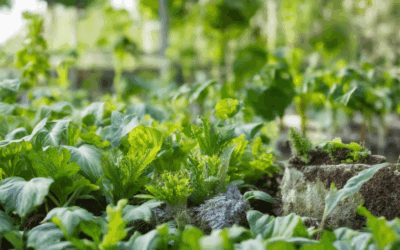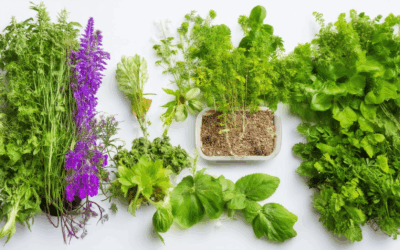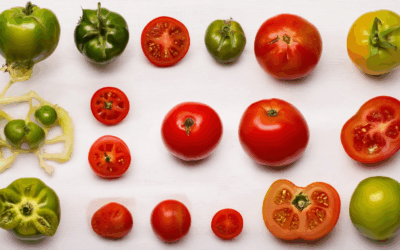Heirloom seeds represent a cornerstone of biodiversity, offering a unique connection to history and nature. These ancient varieties, passed down through generations, preserve invaluable genetic diversity that is crucial for sustainable agriculture and ecological balance. With their rich histories and distinct characteristics, heirloom seeds play a vital role in maintaining biological integrity and fostering resilience in ecosystems. This article delves into the special qualities of heirloom seeds, their significance in biodiversity conservation, and the challenges associated with their preservation and cultivation. By exploring these aspects, we aim to shed light on the importance of heirloom seeds as a natural resource and their impact on global biodiversity.
Key Takeaways
– Challenges of Heirloom Seeds: Heirloom seeds face genetic instability, disease susceptibility, lower yields, limited availability, and require specific growing conditions.
– Advantages of Heirloom Seeds: Offer rich genetic diversity, superior flavor, and unique traits, plus easy seed saving.
– Disadvantages of Heirloom Seeds: Less uniformity, lower yields compared to hybrids.
– Advantages of Hybrid Seeds: Higher yields, better disease resistance, and easier management.
– Disadvantages of Hybrid Seeds: Cannot be saved for future planting without treatment and may lack unique flavors.
– Heirloom Seed Lifespan: Can last up to 15 years or more with proper storage, ideal for long-term use and passing down.
What is so special about heirloom seeds?
Heirloom seeds are traditional plant varieties that have been carefully preserved and passed down through generations without hybridization. Unlike modern seeds, heirlooms are open-pollinated, meaning they grow true to type year after year.
Why Heirloom Seeds Matter
- True to Type: Heirloom seeds consistently produce plants that resemble their parent generation, ensuring stable genetics and predictable growth.
- Superior Flavor: Many heirloom varieties exhibit richer flavors and textures compared to hybrid or commercial seeds, offering a more nuanced eating experience.
- Better Nutrition: Some heirloom crops may contain higher levels of antioxidants and nutrients due to their diverse genetic makeup.
- Diverse Varieties: Heirlooms represent a vast array of genetic diversity, which is crucial for maintaining agricultural biodiversity and resilience.
- Resilience and Adaptability: These seeds are often more robust and adaptable to various environmental conditions, making them ideal for organic and sustainable farming practices.
The Importance of Heirloom Gardening
OldSeed.org emphasizes the significance of heirloom seeds in promoting sustainable agriculture and preserving traditional gardening methods. By choosing heirlooms, gardeners contribute to the conservation of agrobiodiversity, which is essential for food security and ecological health.
Explore our comprehensive guide to learn more about the benefits of heirloom seeds and how to successfully grow them in your garden. Discover the difference these timeless varieties can make in your harvest and your culinary experiences.
Is It Illegal to Save Heirloom Seeds?
Saving heirloom seeds can be legal or illegal depending on the specific circumstances and the nature of the seeds involved. Here’s a breakdown:
- Patented or Proprietary Seeds :
Seeds that are patented or otherwise owned by corporations may fall under intellectual property laws. Saving and distributing such seeds without authorization can be illegal. This applies particularly to hybrid or genetically modified seeds that have been developed with significant investment. - Open-Pollinated Seeds :
Open-pollinated heirloom seeds, which are not subject to patents, are generally legal to save and share. These seeds rely on natural pollination and do not involve controlled breeding or intellectual property rights. - Non-GMO Heirlooms :
Non-genetically modified heirloom seeds may still be subject to restrictions if they are part of a protected variety or have been developed through controlled propagation methods. It’s essential to verify the origin and ownership of these seeds before saving. - Regional Regulations :
Local laws and regulations may also impact seed-saving practices. Some jurisdictions have specific rules regarding seed propagation and distribution, so checking local guidelines is advisable.
To comply with legal requirements, consider purchasing heirloom seeds from reputable sources that offer proper licensing when necessary. This helps ensure that you are not infringing on intellectual property rights while supporting legitimate trade practices. 1
Why is Biological Diversity in Seeds Important?
Biological diversity in seeds is crucial for maintaining ecological balance, ensuring food security, and fostering resilience against environmental changes. Here’s a breakdown of its importance:
- Adaptation to Climate Change : Diverse seed varieties allow plants to adapt to changing climatic conditions. As temperatures rise, seeds with varying genetic makeup can survive stressors like heatwaves, ensuring continued food production.
- Ecosystem Health : Seeds support pollinators like bees and butterflies, which are essential for ecosystem functioning. A diverse seed portfolio provides abundant resources for these creatures, maintaining biodiversity.
- Resistance to Pests and Diseases : Different plant species have unique defense mechanisms. A varied seed selection increases the likelihood of resistance against pests and diseases, preventing widespread crop failure.
- Wild Seeds as a Resource : Wild seeds often possess traits like temperature tolerance and soil adaptability that domesticated varieties lack. Incorporating these can enhance crop resilience and productivity.
- Genetic Diversity : A broad genetic base within seeds offers solutions to issues like nutrient deficiencies and drought resistance, enabling improved crop yields and sustainability.
- Seed Libraries and Gene Banks : These repositories preserve diverse seeds, acting as genetic archives. They safeguard invaluable traits for future agricultural needs.
By valuing biological diversity in seeds, we invest in a sustainable future, ensuring adaptability and resilience against environmental challenges.
Challenges for Heirloom Seeds
- Genetic Instability: Heirloom seeds often have less uniformity compared to hybrid varieties. Their genetic makeup can vary significantly, leading to differences in size, color, and shape. This variability can affect yield and consistency.
- Disease Susceptibility: Heirloom seeds are typically more vulnerable to pests and diseases due to their diverse genetics. Unlike hybrid seeds, which are often bred for specific disease resistance, heirlooms may require more careful monitoring and maintenance to thrive.
- Lower Yields: Many heirloom varieties produce smaller harvests compared to hybrid or genetically modified seeds. This can be a challenge for large-scale farmers or those with limited growing space.
- Limited Availability: Some heirloom seeds are rare or difficult to find, which can limit their accessibility for home gardeners and farmers. This rarity can also increase their cost and make them less accessible for widespread cultivation.
- Requires Specific Growing Conditions: Heirloom seeds may need special attention regarding soil type, water needs, and temperature. They may not perform well in every climate or growing environment, making them less adaptable for some regions.
These challenges highlight the importance of understanding and caring for heirloom seeds to maximize their potential. By addressing these issues with proper gardening practices, many can successfully grow and enjoy these unique and historically significant plants.
For more information and resources on heirloom gardening, visit our Old Seed website.
Comparing Heirloom and Hybrid Seeds
When deciding between heirloom and hybrid seeds, it’s essential to evaluate various factors to determine which type better suits your gardening needs.
- Heirloom Seeds:
- Advantages:
- Open-pollination allows for easy seed saving.
- Rich genetic diversity leads to better adaptability and resilience.
- Superior flavor and unique traits in many varieties.
- Disadvantages:
- Less uniformity in size, shape, and ripening times.
- May have lower yields compared to hybrids.
- Advantages:
- Hybrid Seeds:
- Advantages:
- Higher yields and more uniformity in growth.
- Better resistance to common diseases and pests.
- Easier to manage and predict outcomes.
- Disadvantages:
- Cannot be saved for future planting without treatment.
- May lack the unique flavors and diversity of heirlooms.
- Advantages:
Ultimately, the choice between heirloom and hybrid seeds depends on your specific needs and preferences. Heirlooms offer exceptional flavor and genetic diversity, making them ideal for home gardens focused on flavor and sustainability. On the other hand, hybrids provide stability and higher yields, making them suitable for large-scale farming or commercial production.
How Many Years Do Heirloom Seeds Last?
Heirloom seeds are renowned for their longevity and ability to survive for extended periods under proper conditions. While the exact lifespan can vary depending on the specific type of seed, many heirloom varieties are known to remain viable for several years, sometimes even decades. Here’s a breakdown of typical heirloom seed lifespans:
- Short-Term Viability : Some heirloom seeds, such as those from annual plants, may only remain viable for 2-3 years. These seeds typically germinate well during the growing season but lose their viability over time due to environmental factors and aging.
- Medium-Term Viability : Many heirloom seeds fall into the medium-term category, lasting between 3 to 10 years. These seeds are excellent for passing down through generations and can often be stored successfully for several years, especially when kept in a stable environment.
- Long-Term Viability : There are indeed heirloom seeds that can last for 10-15 years or even longer. These hardy varieties are perfect for long-term storage and can be preserved for extended periods with proper care.
Proper storage is crucial to maintaining the viability of heirloom seeds. Store them in airtight containers in a cool, dark, and dry location to prevent moisture damage and temperature fluctuations, which can reduce germination rates over time.
By understanding the lifespan of heirloom seeds and storing them correctly, you can enjoy their benefits for years to come, making them a valuable addition to your gardening toolkit.








0 Comments